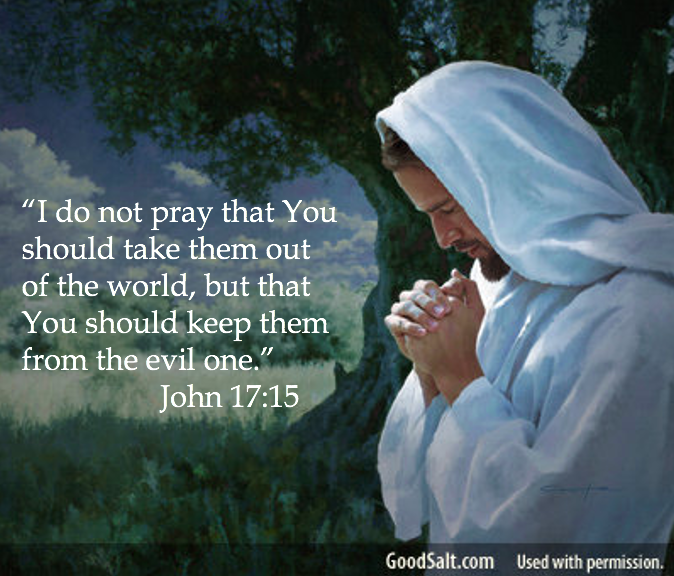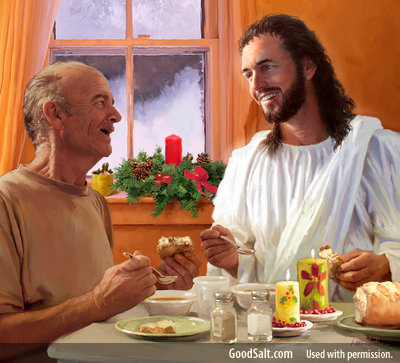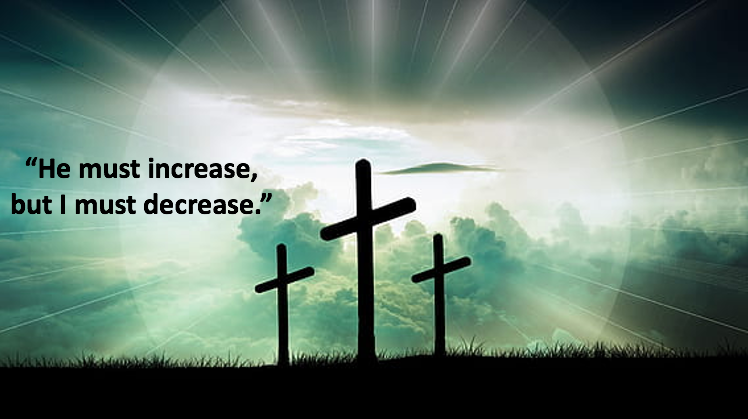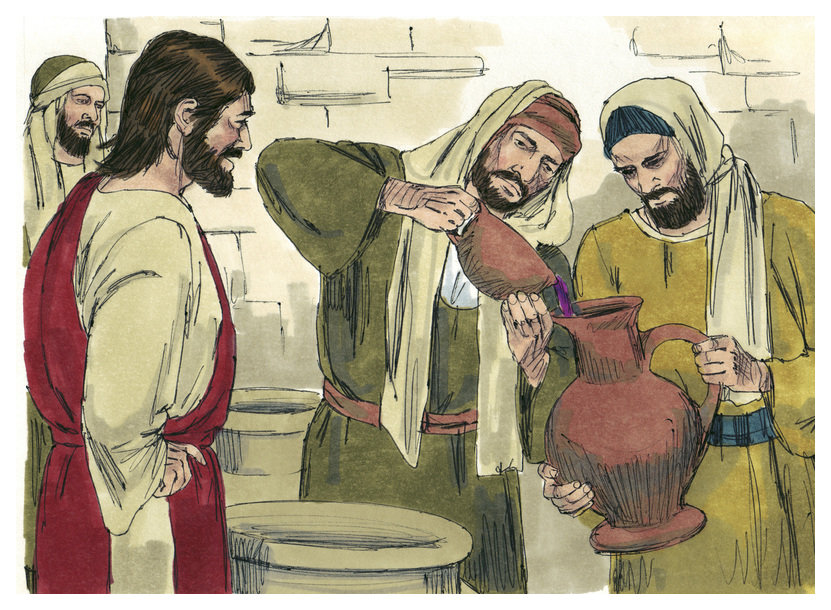“And when Jesus came to the place, he looked up and saw him, and said to him, ‘Zacchaeus, make haste and come down, for today I must stay at your house.’ ” Luke 19:5
We are learning from Jesus’ encounter with a wealthy man named Zacchaeus how much we matter to God. So far we have discovered…
– No matter how insignificant I feel, Jesus notices me (Luke 19:4-5a).
– No matter what other people say, Jesus affirms me (Luke 19:5ab).
Zacchaeus’ appearance made him feel lonely and insecure. His accusers made him feel bitter and resentful. But it was Zacchaeus’ sins, his own lifestyle, his own choices, that made him feel guilty and ashamed. So Jesus Christ did something even more shocking. He didn’t just walk up to the tree and look up and notice Zacchaeus. And He didn’t just call him by name and affirm him as a pure one in front of everybody else who hated him.
Jesus then said, “Zacchaeus, make haste and come down, for today I must stay at your house.” (Luke 19:5). Jesus invited Himself to Zacchaeus’ home for dinner. This is truly amazing!
Think about this. The Son of God, walked all the way through town to find the biggest scoundrel in town and says, “I’m going to go to your house. I’m going to be your guest. Out of all these thousands of people, I choose you, Zacchaeus.”
This leads us to our third profound truth: NO MATTER WHAT I’VE DONE, JESUS ACCEPTS ME (Luke 19:5c-6) and He wants a relationship with me. This is the biggest mind blower of all. Jesus knew that there was no way that Zacchaeus would ever invite Him to his house because Zacchaeus was carrying a lot of hidden guilt, perhaps like some of us today. Because in his mind, Zacchaeus was thinking, “I’m not good enough to have Jesus Christ at my house. I’m not good enough to have God as my guest. You don’t know the things that I have done. I am not good enough to have a relationship with Him.”
And many of us have felt that way. We say to ourselves, “I’m not good enough. If you knew all the shameful things I have done You could never love me or want to spend time with me.” But we are wrong. Spending time with Jesus is not based on our goodness. It is based on God’s incredible love and grace for us. Regardless of all we have done wrong, Jesus Christ still wants a relationship with us.
So Jesus takes the initiative and says, “Zacchaeus, make haste and come down, for today I must stay at your house.” Notice, that Jesus did not say, “I would like to stay at your house.” No, He said “I must stay at your house.” This was a divine appointment. It was a necessary visit. 1 Since Jesus called Zacchaeus by name, He obviously knew Zacchaeus. He knew everything about him, but that did not deter Jesus from taking the initiative and inviting Himself to Zacchaeus’ house.
The truth is, like Zacchaeus, we have done a lot of things we are ashamed of. We have all hurt other people with our own brand of selfishness. Sometimes it is out in the open. Sometimes it is in secret. But we have hurt a lot of other people in our lives by the things we have said and done. Our choices have deeply wounded people. But Jesus wants to change us more than condemn us. Jesus said, “For God did not send His Son into the world to condemn the world, but that the world through Him might be saved.” (John 3:17). Christ came into the world to cleanse us, not condemn us. So He looks at you and me, and He says, “I know you, I love you, and I accept you in spite of all that you have done. And I want you to know and love Me and have a relationship with Me.”
Some of us may think, “If I come to Jesus Christ with all the dirt in my life, He is going to condemn me!” If this is how we think, then we don’t understand how much we matter to Jesus Christ. When we come to Christ in faith, no matter what we have done, Jesus still accepts us. Jesus said, “The one who comes to Me I will by no means cast out.” (John 6:37b). Christ guarantees that when you come to Him in faith, He will never reject you. This may be difficult for us to understand if we have experienced a lot of rejection in our lives.
But there is a big difference between people and God when it comes to forgetting our past. When we sin, people have a tendency to remind us of our past sins. But God forgets! The Bible says, “ ‘16 This is the covenant that I will make with them after those days,’ says the Lord: ‘I will put My laws into their hearts, and in their minds I will write them,’ 17 then He adds, ‘Their sins and their lawless deeds I will remember no more.’ ” (Hebrews 10:16-17). God was not teasing when He said He will remember our sins no more. God has a forgetful nature. “Just as it’s against your nature to eat tree or grow wings, it’s against God’s nature to remember forgiven sins.” 2
“You see, God is either the God of perfect grace… or He is not God. Grace forgets. Period. Grace does not judge! He who is perfect love cannot hold grudges. If He does, then He isn’t perfect love.” 3 Grace is when God gives us what we don’t deserve. He gives us what we need instead of what we deserve. None of us deserve to be forgiven. None of us deserve to have our sins remembered no more. But God’s grace forgives and forgets!
Think about this. If God did not forget, how could we pray? How could we sing to Him? How could we dare enter into His presence if the moment He saw us He remembered all our sinful past? 4
Let me illustrate this with a $100 bill. If I took a $100 bill and crumpled it up in my hand, would you still want it? Yes. But what if I stomped on that $100 bill with my dirty shoes on? Would you still want it? Yes, of course you would. But why? Because it has not lost any of its value. Yes, your life may be crumpled and stained by sin. It may be a total mess. But your life has not lost any value to God! And, yes, you have blown it but Jesus Christ still wants a relationship with you.
When we come to Jesus, He accepts us and He will never reject us. No matter what we have done, Jesus wants a relationship with us. Knowing that Jesus notices everything in our lives, He affirms us regardless of what anyone else says about us, and He still wants a relationship with us in spite of the fact that we have rejected Him in the past, how should you respond to Him?
The way Zacchaeus did. The Bible says, “So he made haste and came down, and received Him joyfully.” (Luke 19:6). I think Zacchaeus was saved before he hit the ground. He thought, “This is a deal I am not going to get anywhere else. I am going to take advantage of it right now.” Zacchaeus didn’t just receive Jesus joyfully into his house that day, he joyfully received Jesus into his heart. His heart was filled with joy because no one had ever showed him such love and grace as Jesus just did!
With the God who notices… affirms… and accepts you and is waiting with open arms, give me one logical reason why you should refuse to receive him as your Savior. There is none. It is so simple. The Bible says, “But as many as received Him, to them He gave the right to become children of God, to those who believe in His name.” (John 1:12). Believe and receive. Zacchaeus joyfully received Jesus into his life by believing in Him. God became His Father in heaven and Zacchaeus became God’s child forever at that moment of faith.
Today I want to invite you, like Zacchaeus, to jump out of the tree you are in or get off the limb you are out on or get out of the dark hole and receive Jesus Christ into your life. How can you do that? The Bible says you must simply believe in Jesus Christ. “Whoever believes that Jesus is the Christ is born of God.” (I John 5:1). Jesus is the promised Christ, the Messiah-God (cf. Isaiah 9:6; John 1:1, 14, 41; 20:31). When you believe this, you are born of God. You are placed in God’s family forever and He will never cast you out (John 6:37).
In John 14:6, Jesus says, “I am the way, the truth, and the life. No one comes to the Father except through Me.” Jesus makes it very clear that there is only one way to God and that is through Him. Our sin, the wrong things we have done, separate us from God (Romans 6:23a). But Jesus has provided the only way back to God by dying on the cross for all our sins (John 19:30; I Corinthians 15:3-6). He took our place and punishment on the cross, was buried, and then rose again. The Lord Jesus is alive today and He now invites you to believe or trust in Him alone for His free gift of eternal life.
Just as you trust a chair to hold you up through no effort of your own, so you must trust in Jesus Christ alone as your only way to heaven. Your good life, religion, or prayers will not save you. Only Jesus can save you. The Bible says, “Nor is there salvation in any other, for there is no other name under heaven given among men by which we must be saved.” (Acts 4:12). Did you catch that? “No other name under heaven” can save us from eternal separation from God outside of Jesus Christ. Your monk, parent, pastor, peers, politician, priest, prophet, or imam, cannot save you from your sins. You and I cannot save ourselves. But Jesus Christ can.
And the moment you place your trust in Jesus for eternal life, you become God’s child and God comes to live inside you through His Spirit. He can change the way you see yourself.
If you just believed or trusted Christ alone today for His gift of salvation, I would like to give you a chance to tell God what you have done. You can pray this prayer in your heart, keeping in mind that prayer does not save, trusting Christ saves.
Prayer: Dear God, thank You for noticing every detail of my life… for seeing my potential in spite of my sin… for wanting a relationship with me in spite of all that I have done wrong. Today I realize there is nothing I can do to deserve heaven. So right now as best I know how, I am trusting You alone, Jesus, to forgive all my sins and to give me eternal life. Thank You for the assurance that I will now be with you in heaven when I die. Thank You for not being ashamed of me. I do not want to be ashamed of You, Lord Jesus. Please help me to see myself as You see me – forgiven, redeemed, and saved forever. Help me to tell others what You have done for me. In Your mighty name I pray Lord Jesus. Amen.
When you believed in Jesus, He placed you in God’s family forever (John 1:12; 6:37). All of your sins are forgiven (Colossians 2:13-14). God has forgotten all your sins so you can approach Him with boldness now through prayer (Hebrews 10:16-22). God is now Your Father in heaven and you are His child forever (Matthew 6:9). You now have many brothers and sisters in Christ all around the world. And at that moment of faith in Jesus, everything changed in your life just as it did in Zacchaeus’ life. Lord willing, we will discover next time just how dramatically Zacchaeus’ life changed and how Jesus can change our lives too.
ENDNOTES:
1. Tony Evans, CSB Bibles by Holman. The Tony Evans Bible Commentary (B & H Publishing Group, Kindle Edition, 2019), pg. 1717.
2. Retrieved from Steve Siemen’s communion meditation at NewLife Church in Pleasant Hill, Iowa on August 8, 2021.
3. Ibid.
4. Adapted from Ibid.










